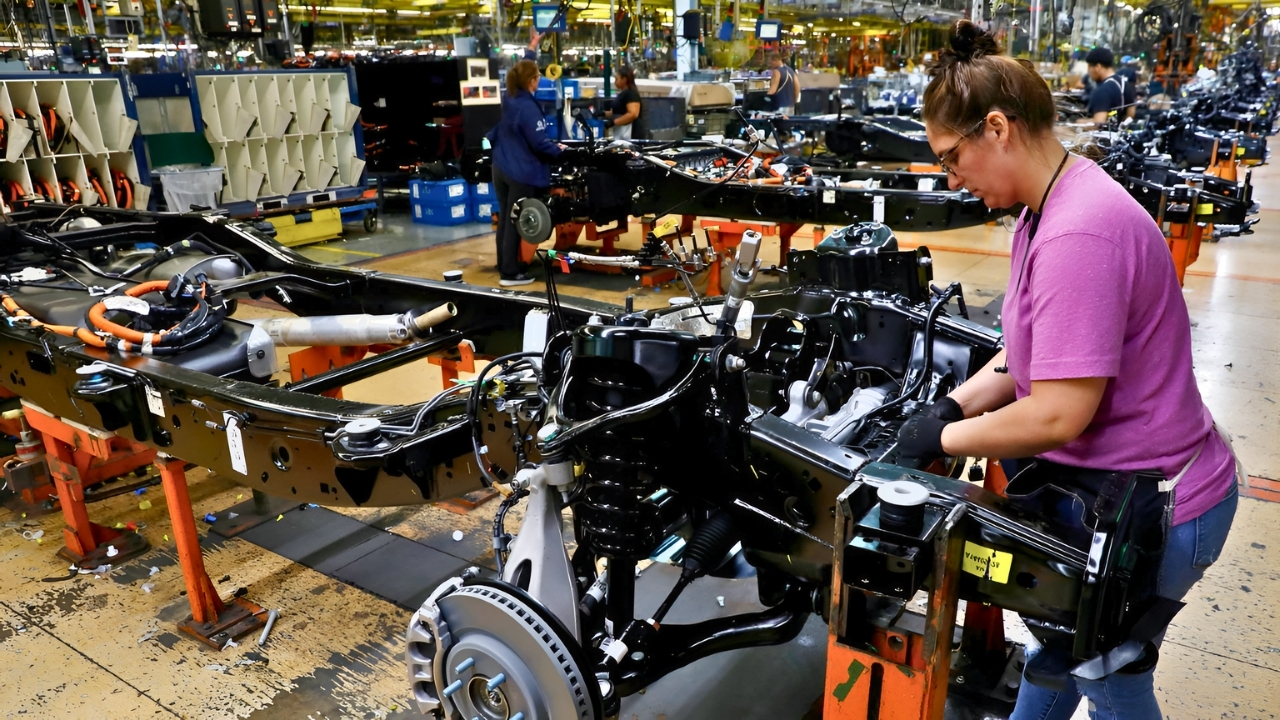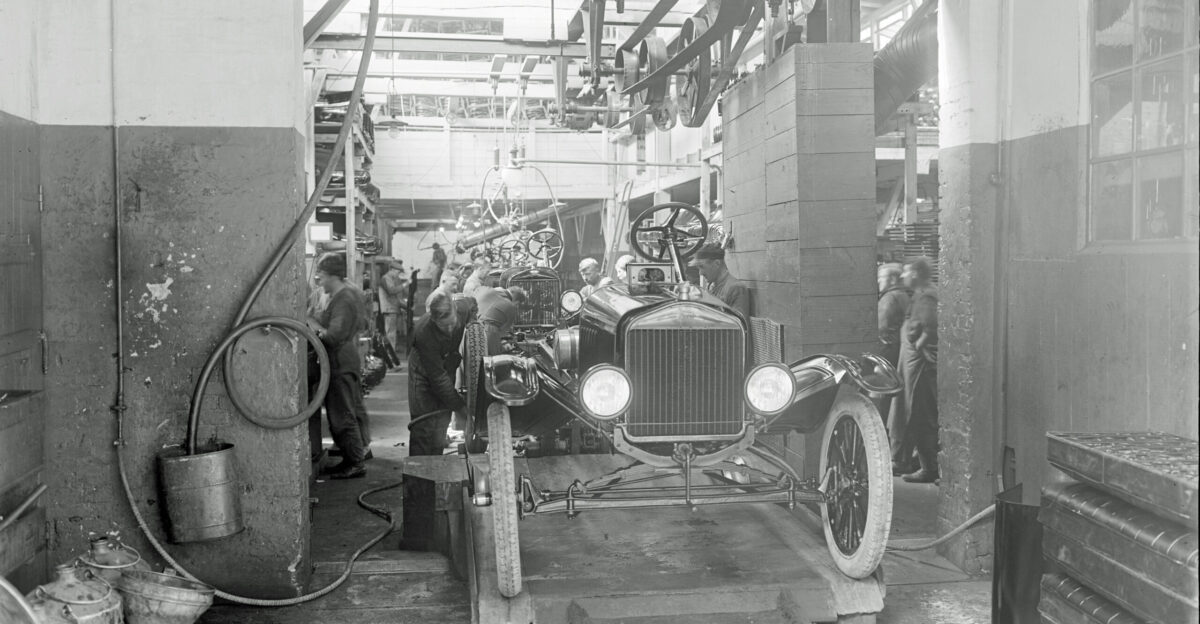
Ford’s Louisville Assembly Plant is set for a dramatic transformation, as the automaker prepares to shut down the historic Kentucky facility for nearly a year starting December 2025. This move signals Ford’s largest manufacturing overhaul in decades, with the plant’s current output—the Ford Escape and Lincoln Corsair—slated for discontinuation after 2025. The stakes are high for Ford and its 3,200 Louisville workers, as the company bets big on the future of electric vehicles.
A High-Stakes Bet on Electric Vehicles

Ford’s CEO, Jim Farley, has described the Louisville retooling project as a “high-stakes gamble,” acknowledging the uncertainty and execution risks involved. The company is investing nearly $2 billion to convert the plant into a hub for electric vehicle (EV) production. This investment will fund a complete reconstruction of the assembly line, the installation of advanced manufacturing technology, and infrastructure upgrades. The overhaul coincides with Ford’s broader push into EVs, including the construction of the BlueOval SK battery facility in nearby Hardin County.
Despite Ford’s confidence, the company’s Model e division has faced significant financial challenges. In the second quarter of 2025, Model e reported an EBIT loss of $1.3 billion, with first-half losses totaling $2.2 billion. These losses are attributed to tariffs, investments in next-generation EVs, and the costs of launching new battery manufacturing facilities. The division’s EBIT margin remains deeply negative, highlighting the financial risks Ford faces as it pivots toward electrification.
Revolutionizing Vehicle Assembly

Central to the Louisville transformation is Ford’s adoption of a new “assembly tree” manufacturing system, which replaces the traditional moving assembly line pioneered by Henry Ford. The new process divides vehicle production into three simultaneous sub-assembly lines—front, rear, and battery-structural systems—which converge to complete the vehicle. This innovation reduces the number of workstations by 40% and uses 20% fewer parts, streamlining production and cutting costs.
Ford is also implementing Gigapress die-casting technology, originally developed by Tesla. These massive machines stamp entire vehicle subassemblies from single sheets of aluminum, replacing the labor-intensive welding of dozens of smaller parts. The result is a simpler, more robust manufacturing process that enhances structural integrity and efficiency.
Launching an Affordable Electric Pickup

The first product of the retooled Louisville plant will be a midsize, four-door electric pickup truck, scheduled for launch in 2027 with a starting price around $30,000. Positioned between Ford’s Maverick and Ranger models, the new truck aims to deliver mass-market affordability. It will feature a spacious cabin comparable to the Toyota RAV4, a front trunk (“frunk”), and a lockable truck bed.
The truck will be built on Ford’s Universal EV Production System—a flexible, modular platform supporting up to eight body styles, including pickups, crossovers, SUVs, and sedans. The platform uses a 400-volt electrical architecture, prioritizing cost over ultra-fast charging. It contains 20% fewer parts and 25% fewer fasteners than traditional vehicles, further reducing complexity and expense.
Battery technology is another focus, with Ford opting for lithium-iron-phosphate batteries that are cobalt- and nickel-free. Manufactured at Ford’s new Michigan facility, these batteries serve as the vehicle’s structural flooring, optimizing space and reducing weight. Multiple battery configurations will be available, with EPA-estimated range details to be announced closer to launch.
Workforce Challenges and Support
The retooling will have a profound impact on Louisville’s workforce. Between 2,000 and 2,300 production workers will be laid off during the eight- to ten-month shutdown, facing significant personal and financial hardship. Workers will receive full pay for the first four months, after which they transition to Kentucky unemployment benefits, supplemented to approximately 70% of their normal wages under the 2023 UAW contracts.
Ford has pledged comprehensive support for affected employees, including resource fairs and guidance on temporary employment and retraining opportunities. However, job security remains uncertain. While Ford claims the investment will secure about 2,200 hourly positions after reopening, the new assembly system’s efficiency suggests the plant may need fewer workers than before, raising concerns about net job losses.
Competitive Pressures and Policy Uncertainty
Ford’s transformation is driven by fierce competition from Chinese EV manufacturers, especially BYD, which dominates global markets with affordable, high-quality vehicles. CEO Farley has emphasized the need for Ford to offer credible, affordable alternatives to remain competitive. The new $30,000 platform is designed to meet this challenge head-on.
The project also faces headwinds from shifting U.S. policies. The expiration of the $7,500 federal EV tax credit in September 2025 and new tariffs have created a $2 billion financial obstacle for Ford this year alone. These uncertainties have led to delays and downsizing of battery plant investments across the industry.
Looking Ahead: Stakes for Ford and Kentucky

Ford’s $2 billion investment in Louisville is expected to generate significant economic benefits for Kentucky, supporting thousands of direct and indirect jobs and strengthening the state’s position as an automotive manufacturing hub. The project also advances Ford’s environmental goals by reducing material waste and enabling broader EV adoption.
As Ford embarks on what CEO Farley calls its “Model T moment,” the company faces the challenge of executing a revolutionary manufacturing system, managing workforce transitions, and navigating an unpredictable policy landscape. The success of the Louisville overhaul will shape Ford’s future in the electric vehicle market and determine its ability to compete on a global stage.